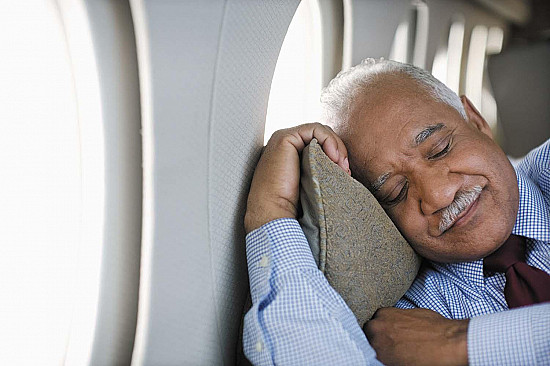How to reset your internal clock to combat jet lag
This month we perform the annual ritual of turning back our clocks as Daylight Savings Time ends. Most of us can handle the one-hour time change easily. However, when we travel long distances across several time zones, few of us can survive the trip without feeling a little out of whack. For holiday travelers flying from coast to coast or overseas, recovering from the symptoms of jet lag—fatigue, insomnia, digestive upsets, and headaches—can consume a day or two of precious vacation time. According to Dr. Charles A. Czeisler, director of the Division of Sleep Medicine at Harvard Medical School, jet lag is due to a misalignment between the external environment and the internal clock in the brain that drives our daily performance, alertness, and the ability to sleep.
To continue reading this article, you must log in.
Subscribe to Harvard Health Online Plus (HHO+) to unlock expert-backed health insights, personalized tools, and exclusive resources to feel your best every day.
Here’s what you get with your HHO+ membership:
- Unlimited access to all Harvard Health Online content
- 4 expertly curated newsletters delivered monthly
- Customized website experience aligned to your health goals
- In-depth health guides on topics like sleep, exercise, and more
- Interactive features like videos and quizzes
- Members-only access to exclusive articles and resources
I’d like to subscribe to HHO+ for $4.99/month to access expert-backed content to help make smart, informed decisions about my well-being.
Sign Me UpAlready a member? Login ».
Disclaimer:
As a service to our readers, Harvard Health Publishing provides access to our library of archived content. Please note the date of last review or update on all articles.
No content on this site, regardless of date, should ever be used as a substitute for direct medical advice from your doctor or other qualified clinician.















